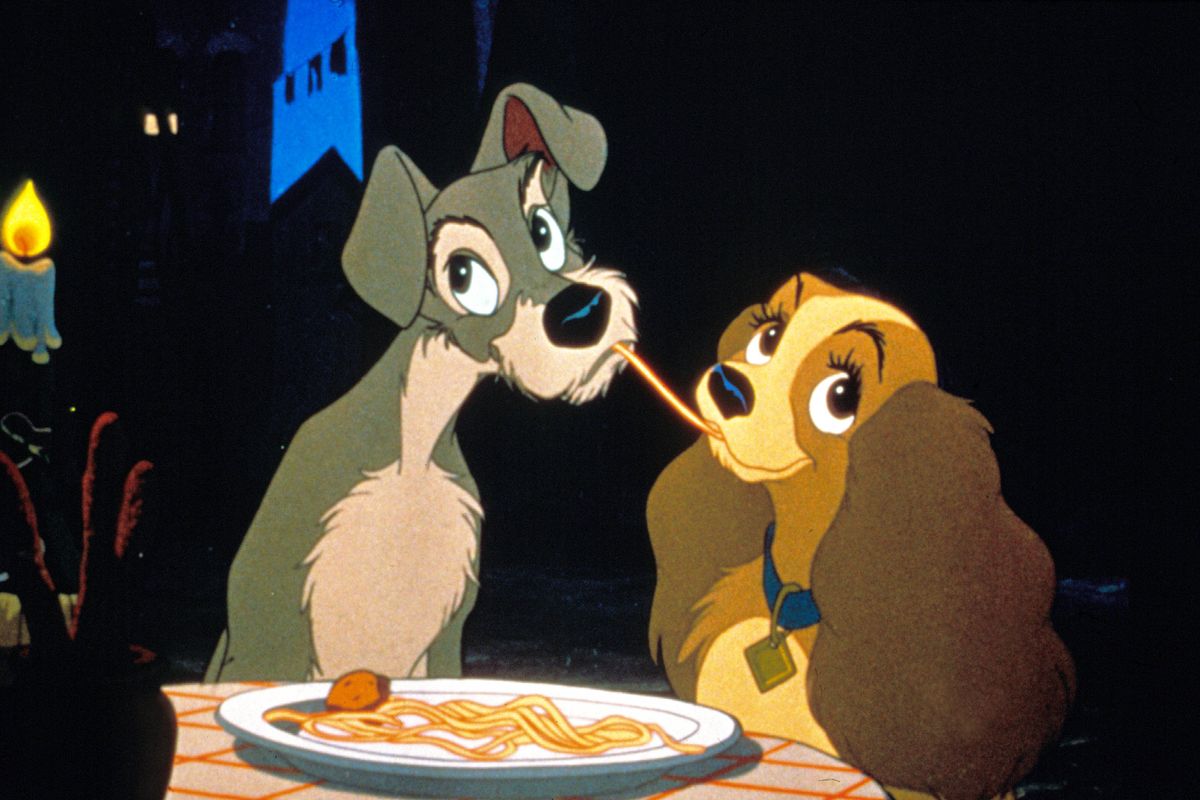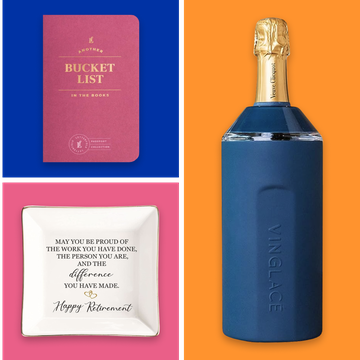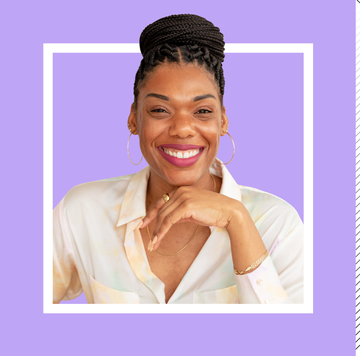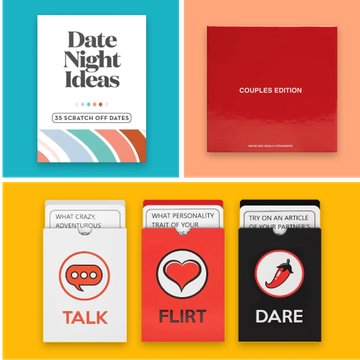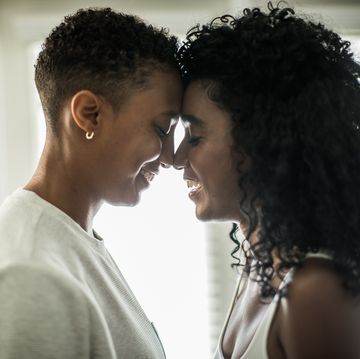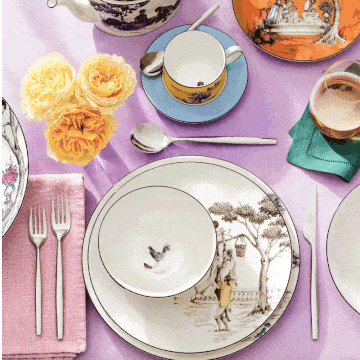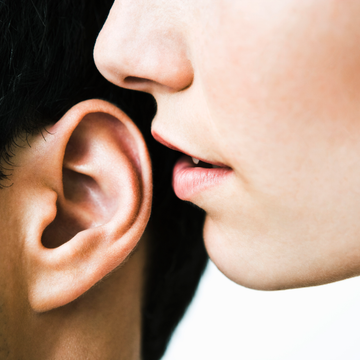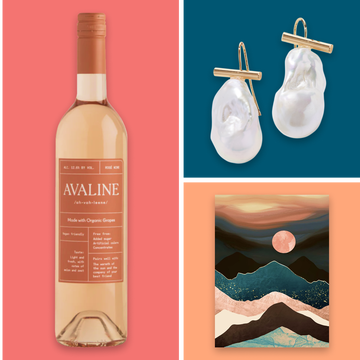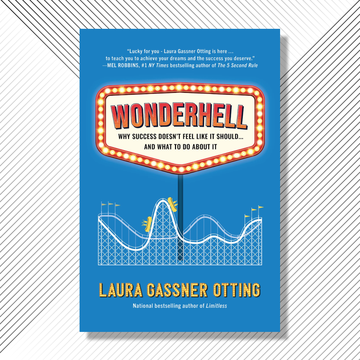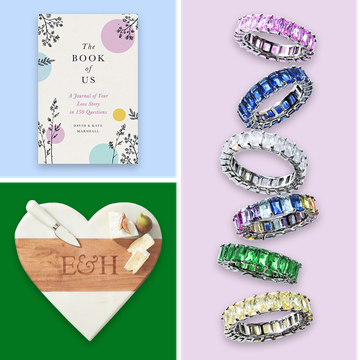If you grew up when record players were cool the first time around, you might have sung along to the 1960 Paul Anka hit “Puppy Love,” or to Donny Osmond’s version of the song 12 years later: “And they called it puppy love / Just because we’re 17… / Oh, how can I ever tell them? / This is not a puppy love.”
If you grew up with an iPhone in your hand and search the term on TikTok, you’ll be served reams of dog owners playing with their frisky canine friends.
Yet the original meaning still floats through the cultural ether—in book and movie reviews, parenting magazines and teen sites, and casual conversation. The Merriam-Webster dictionary describes the phrase as “romantic feelings of love that are felt between young people and are not considered to be real love by more experienced adults.” Just two years ago, a 16-year-old girl asked Teen Vogue’s relationship expert: “Do you believe it is possible for teens to fall in love? Not just puppy love, but, like, real love. The love our parents feel for one another.”
More From Oprah Daily

Teen Vogue’s answer, in a word: Absolutely. And plenty of teenagers agree. “My parents kept saying, “This is fun; you’re young, trying new things,” a 15-year-old sophomore in Washington, D.C., told me, describing her two-year relationship with her first love. “Those words don’t acknowledge you could have a deeper emotional connection to this person.” A recent high school grad in Louisville, Kentucky, who experienced her first relationship through 10th and 11th grades, said, “For me, the term puppy love means immature love. But teenagers don’t want to hear it described that way. It makes us feel ‘less than.’”
What these young women and their Gen Z peers should know is that a fleet of psychologists have their back. They work in an area of study within human psychology called adolescent romantic relationships, and through interviews, questionnaires, love scales, cross-cultural and minority-group comparisons, and nationwide longitudinal studies, they’ve found that teen love is real and profound, plus something else: potentially life-shaping.
“For decades, people regarded adolescent relationships as fleeting or flings, nothing very relevant,” says Manfred van Dulmen, PhD, a professor of psychological sciences at Kent State University. “Yet it’s become apparent that adolescent romantic relationships are really meaningful and have long-lasting impacts.”
According to Charlene Collibee, PhD, a researcher at Brown University Warren Alpert Medical School, “one of the developmental tasks of adolescence is intimacy development, which is growth through learning, testing, and exploring.” In other words, laying emotional footprints. “Love relationships don’t just pop out fully formed in an 18-year-old,” says Jennifer Connolly, PhD, a professor of psychology at York University in Toronto.
The term for this growth period is the adolescent romantic pathway. It starts with same-sex friendships in elementary school, followed by mixed-sex socializing, crushes, and casual dating in middle school. In high school and beyond, teens form more couple-centered relationships that deepen in intimacy and last longer. While prior research has focused mainly on heterosexual youth, scholars are increasingly involved in exploring differences along this romantic pathway for LGBTQIA+ teens.
The pathway’s launch is puberty. “Because of human evolution and the push toward reproduction at an early age,” says Pepper Schwartz, PhD, an emeritus professor of sociology at the University of Washington, “teens are wired to have the same emotional and physical drives for intimacy as older men and women,” Love will mean different things at different stages of life, she says, but that doesn’t mean early love isn’t real love.
Furthermore, studies show that even short-lived romances can bolster interpersonal skills such as managing strong emotions, negotiating conflict, and communicating effectively. They also contribute to young people’s search for identity and autonomy and shape something researchers call romantic self-concept, the internal sense we develop of ourselves as intimate partners. (Conversely, departures from the standard “romantic pathway” can be red flags: Intense involvement in a love relationship between the ages of 10 and 13 has been correlated to greater risk of substance abuse, school truancy, and criminal involvement than in older teens; and girls heavily involved in early dating have been found to be more prone to anxiety and depression within the next six months to a year.)
Another term these researchers use a lot is quality. “High-quality relationships,” defined by nurturance, intimacy, and trust, may forecast positive outcomes in mental health and relationship stability into early adulthood, says Brown University’s Collibee. “Low-quality relationships”—characterized by conflict, aggression, and controlling behavior—may foretell a greater potential for distress in adult relationships. Manfred van Dulmen, who has conducted studies on teen dating violence, adds that “while high-quality relationships have been linked to social competence, self-esteem, and commitment readiness, it’s also important to know that low-quality relationships are not destiny. Early intervention can have a positive impact on adulthood outcomes.”
So how can adults meet their teens where they are, and gently guide them toward healthy connections?
Lisa Damour, PhD, a clinical psychologist and author of The Emotional Lives of Teenagers, focuses on “quality,” too—this time, the quality of parent-teen communication. Instead of giving “the talk”—a finger-wagging list of the risks involved in love and sex (which is also, incidentally, the curriculum of most school health classes)—Damour recommends weaving parental values into the daily lives of teens, starting early.
“You’re going to get a lot further with a conversation,” said Damour. “Do it when the door opens—when you’re watching To All the Boys I’ve Loved Before together or listening to a love song by Olivia Rodrigo in the car or discussing classmates’ relationships at school. The chances of having a meaningful conversation go way up if we take opportunities that abound in our lives.”
However, when that door swings open, Damour counsels, parents need to know what they want to say. The message might sound like this: “The best relationships, whether platonic or romantic, bring out the best version of ourselves—we feel at ease, calm, improved. I want you to seriously reconsider whether a person gets to spend time with you, should you be treated less respectfully.”
Or you could try this powerful script from the wise high school sophomore in D.C.: “If I were a parent, I would ask, ‘Are you happy? Is this a relationship you want to be in? Are you comfortable?’ Then I would say, ‘What can I do to support you best?’”
